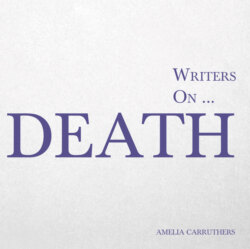Читать книгу Writers on... Death (A Book of Quotes, Poems and Literary Reflections) - Amelia Carruthers - Страница 7
На сайте Литреса книга снята с продажи.
Оглавление[no image in epub file]
3
In this simple point, a triumph over death is evidenced. Death, as soon as it is realised, destroys itself. John Donne's Divine Meditations expressed this idea in all its poetic brilliance, in one of the best known sonnets on fatality, 'Death, Be Not Proud':
Death, be not proud, though some have called thee Mighty and dreadful, for thou art not so;For those, whom thou think'st thou dost overthrow,Die not, poor Death, nor yet canst thou kill me.
Despite the appeal of the arguments above, for anyone who has directly experienced the death of a loved one, 'triumph' is an emotion diametrically opposed to the unavoidable sense of loss, suffering and emptiness. The process of grief and bereavement is an integral part of writing about death, and the profundity of great literary deaths; King Lear's lamentation over his daughter Cordelia, Anna Karenina's shockingly brief suicide, or Emma Bovary's appallingly long demise, help the reader structure their own thoughts on love, life and loss. For Shakespeare's King Lear, there is an element of delusion, of an unwillingness to believe in the death of his beloved child; 'No, no, no Life! Why should a dog, a horse, a rat, have life, And thou no breath at all?' As evidenced in the work of John Donne, death is nothing if not a paradox. Cordelia's actions (refusing to express her love for her father), showed that true feelings lay too deep for words – yet often words are all we have. This is where great literature and
